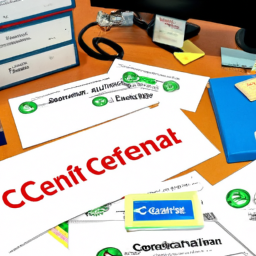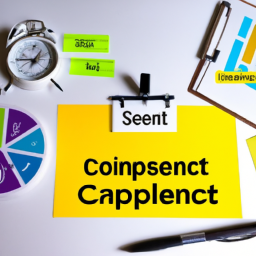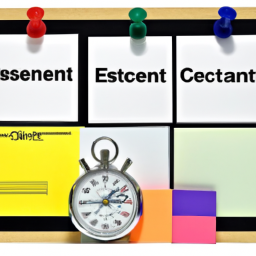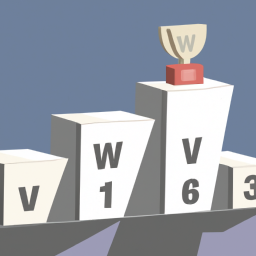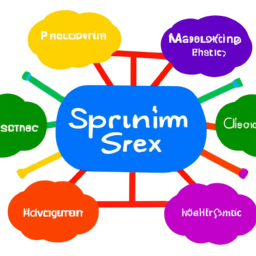Are you ready to uncover the truth about the SCRUM exam? Get ready to separate fact from fiction as we delve into the myths and misconceptions surrounding this crucial certification.
In this article, we will guide you through the importance of the SCRUM exam and reveal the benefits it can bring to your career.
So, buckle up and prepare to have your doubts dispelled as we clear the air and provide you with the information you need to succeed.
Key Takeaways
- The SCRUM exam is not extremely difficult and can be passed with proper preparation and understanding of the SCRUM framework.
- Extensive coding knowledge is not required for the SCRUM exam, as it focuses more on the principles and practices of SCRUM.
- The SCRUM exam is not only relevant for software development projects but can be applied to various industries and projects.
- The SCRUM exam is not designed to trick or fail candidates but to assess their knowledge and understanding of agile project management methodologies.
Debunking Common Misconceptions About the SCRUM Exam
You may be surprised to learn that many of the common misconceptions about the SCRUM exam are simply not true. Let’s take a moment to clarify some of these misconceptions and debunk the myths surrounding the SCRUM exam.
First and foremost, one of the biggest misconceptions is that the SCRUM exam is extremely difficult and impossible to pass. This is not true. With the right preparation and understanding of the SCRUM framework, anyone can successfully pass the exam.
Another myth is that the SCRUM exam requires extensive coding knowledge. While having a basic understanding of coding can be helpful, the exam focuses more on the principles and practices of SCRUM, rather than your coding skills.
Lastly, some believe that the SCRUM exam is only relevant for software development projects. This is not accurate. The principles and practices of SCRUM can be applied to various industries and projects, making the exam valuable for anyone involved in project management.
Understanding the Importance of the SCRUM Exam
Understanding the importance of the SCRUM exam can greatly benefit your career in project management. It is a valuable certification that demonstrates your knowledge and expertise in agile project management methodologies. Here are some advantages of taking the SCRUM exam:
- Increased employability: Having a SCRUM certification makes you stand out in the competitive job market and increases your chances of being hired or promoted.
- Enhanced project management skills: The SCRUM exam equips you with the necessary skills and techniques to effectively manage projects using agile methodologies, leading to improved project outcomes.
- Professional recognition: The SCRUM certification is recognized globally and validates your expertise in agile project management, earning you respect and credibility in the industry.
To prepare for the SCRUM exam, consider the following techniques:
- Study the SCRUM Guide: Familiarize yourself with the SCRUM framework and its principles, roles, and artifacts.
- Take practice exams: Practice exams help you identify your weak areas and improve your knowledge and understanding of SCRUM.
- Join study groups or training programs: Collaborating with others and receiving guidance from experienced professionals can enhance your preparation and learning experience.
Unveiling the Truth Behind SCRUM Exam Myths
Unveiling the truth behind SCRUM exam myths can help professionals make informed decisions about their certification journey. To clear misconceptions and debunk false beliefs, it is important to understand the reality of the SCRUM exam.
One common myth is that the exam is extremely difficult and impossible to pass. However, with proper preparation and study, the SCRUM exam can be manageable and attainable.
Another misconception is that the SCRUM exam is only for project managers. In reality, the SCRUM framework is applicable to various roles and industries, making the exam beneficial for professionals in different fields.
By understanding these truths, you can confidently pursue the SCRUM exam and reap its many benefits.
Now, let’s explore the benefits of taking the SCRUM exam.
The Benefits of Taking the SCRUM Exam
To fully grasp the advantages of taking the SCRUM exam, it’s essential to recognize the value it brings to your professional growth and career opportunities. Here are three compelling reasons why investing in exam preparation can lead to significant career advancement:
-
Enhanced Skillset: By studying for the SCRUM exam, you will gain a comprehensive understanding of the SCRUM framework, allowing you to effectively manage projects and teams. This knowledge will make you a valuable asset in any organization.
-
Increased Marketability: Holding a SCRUM certification demonstrates your commitment to continuous learning and professional development. It sets you apart from other candidates and gives you a competitive edge in the job market.
-
Expanded Network: As you prepare for the SCRUM exam, you will have the opportunity to connect with like-minded professionals, attend industry events, and join online communities. These connections can lead to new career opportunities and collaborations.
Investing time and effort in SCRUM exam preparation can pave the way for a successful and fulfilling career in project management.
Clearing the Air: What You Need to Know About the SCRUM Exam
Getting familiar with the requirements and study materials for the SCRUM exam can help you feel more confident and prepared for success. When it comes to SCRUM exam preparation, there are a few tips and tricks that can increase your chances of passing.
First, make sure to thoroughly understand the SCRUM framework, its principles, and its roles. This will provide a solid foundation for answering exam questions.
Additionally, practice with sample questions and mock exams to get a feel for the exam format and timing. Time management is crucial, so learn to prioritize questions and allocate your time accordingly.
Finally, don’t be afraid to ask for help or join study groups to discuss and clarify any doubts you may have.
Frequently Asked Questions
Can I Take the SCRUM Exam Without Any Prior Experience or Knowledge of SCRUM Methodology?
You can take the SCRUM exam without any prior experience or knowledge of SCRUM methodology. However, there are pros and cons to consider.
On the positive side, it allows you to learn about SCRUM from scratch and gain a certification.
On the downside, it may be challenging to understand the concepts without any prior background.
It is recommended to study and familiarize yourself with SCRUM principles before attempting the exam for a higher chance of success.
How Long Does It Typically Take to Prepare for the SCRUM Exam?
When preparing for the SCRUM exam, it’s important to have a realistic timeline. The length of time it takes to prepare can vary depending on your prior knowledge and experience. On average, it may take several weeks to a few months to adequately study and understand the SCRUM methodology.
To ensure success, it is recommended to utilize various study resources such as online courses, books, and practice exams. Remember to set aside dedicated study time and stay committed to your preparation.
Is the SCRUM Exam Recognized Globally or Only in Specific Countries?
The Scrum exam is recognized globally, not just in specific countries. This certification holds value across industries and is highly sought after by employers around the world.
With its focus on agile project management, Scrum certification demonstrates your expertise in managing complex projects and delivering high-quality results.
Whether you’re in the United States or abroad, having a Scrum certification can open up new career opportunities and showcase your skills on a global scale.
What Is the Passing Score for the SCRUM Exam?
The passing score for the Scrum exam varies depending on the certification level you are aiming for. The difficulty level also differs for each level, but with proper preparation and understanding of Scrum principles, you can increase your chances of success.
It is important to remember that the Scrum exam evaluates your knowledge and understanding of Scrum practices, so make sure to study thoroughly and familiarize yourself with the exam format to achieve a passing score.
Can I Retake the SCRUM Exam if I Fail on My First Attempt?
Yes, you can retake the SCRUM exam if you fail on your first attempt. The passing criteria may vary depending on the organization or certification body.
It is important to review the specific guidelines provided to understand the retaking process and any limitations that may apply.
It is recommended to thoroughly prepare for the exam and address any areas of weakness before attempting to retake it.
Conclusion
In conclusion, now that you have a better understanding of the SCRUM exam, it’s time to debunk the myths and misconceptions surrounding it.
Remember, the exam is not as difficult as it seems, with a pass rate of 85% for first-time takers. By taking the exam, you can gain valuable knowledge and skills in SCRUM methodology, enhancing your career prospects in the field of project management.
So don’t let the misconceptions hold you back. Embrace the challenge and reap the benefits of becoming a certified SCRUM professional.







